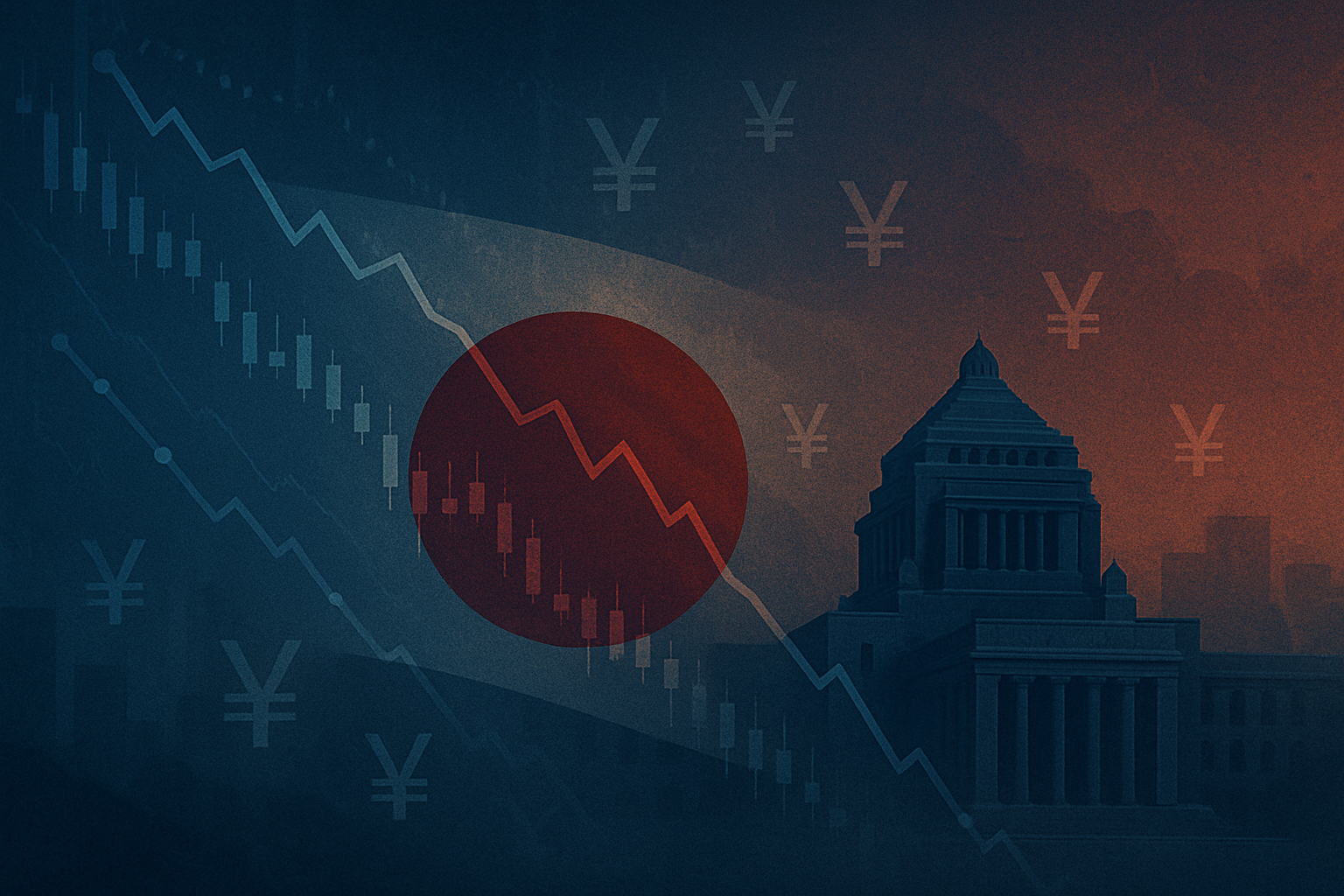Investors across Asia are bracing for potential volatility as Japan heads into its pivotal upper-house election on July 20, with implications stretching well beyond Tokyo. Market sentiment has already turned cautious, with the yen weakening, Japanese equities drifting lower, and bond yields softening amid political uncertainty.
At the center of the storm is Prime Minister Shigeru Ishiba’s fragile coalition, which may struggle to retain its majority. A poor showing could disrupt fiscal policy plans, stall economic reforms, and test the independence of the Bank of Japan (BoJ)—a scenario that could trigger renewed capital flight and currency instability.
A Pre-Election Market Slowdown Signals Caution
Japan’s financial markets are reflecting a clear hesitation ahead of the vote. The Nikkei 225 is down ~1.8% over the past week, underperforming regional benchmarks. The yen has slipped below 158 per dollar, a six-week low, while bond yields have fallen as investors rotate into safe-haven assets.
According to Reuters’ Morning Bid and Take Five reports (July 18, 2025), investors are pricing in the possibility of a weakened mandate for Ishiba, potentially derailing proposed fiscal stimulus packages and raising the risk of gridlock on structural reforms. These include digital infrastructure investments, energy diversification, and long-delayed pension reform.
“Markets dislike uncertainty,” said an analyst from Nomura Securities, noting that “the risk of political fragmentation increases the likelihood of delayed policy action and uncoordinated stimulus—particularly if opposition groups push for monetary tightening or fiscal restraint.”
Why This Matters for Global Investors
Japan plays an outsized role in regional capital markets. It’s the third-largest economy in the world, a key U.S. ally in Asia, and a dominant source of outbound investment into Southeast Asia. Instability in Tokyo can ripple outward, affecting Asian ETFs, currencies, and export-heavy equities.
Foreign investors have already begun to pull back. According to data from the Tokyo Stock Exchange, overseas funds sold a net ¥364 billion in Japanese equities last week, the highest weekly outflow since February. Meanwhile, inflows into hedged Japan ETFs like the iShares Currency Hedged MSCI Japan ETF (HEWJ) have risen by 12%, suggesting rising demand for risk-managed exposure.
The BoJ is also in a precarious position. Any signs that monetary policy is being politicized—or that stimulus could be delayed—could shake confidence in Japan’s recovery trajectory and spill over into Asian bond markets.
Future Trends to Watch
Several key indicators may guide investor strategy over the coming weeks:
- Election Results and Coalition Math: A razor-thin margin could lead to policy paralysis, while a stronger-than-expected showing for Ishiba may restore confidence.
- Currency Intervention Risks: The yen’s weakness may force the BoJ or Ministry of Finance to step in, particularly if speculative pressure mounts post-election.
- Shift in Foreign Investment Patterns: Investors may rotate toward defensive regional assets such as Singapore REITs, South Korean large caps, or Chinese SOEs.
- Emerging Policy Themes: Watch for opposition parties pushing changes in Japan’s carbon neutrality targets, defense spending, and semiconductor subsidies—all of which affect specific sectors.
Key Investment Insight
With volatility set to rise, hedging exposure to the yen is essential. Investors with Japan-focused holdings should consider currency-hedged ETFs or derivative overlays. For those seeking safety, rotating into defensive Asian equities or local-currency bond funds may offer a buffer.
Meanwhile, political instability could present buy-the-dip opportunities in undervalued Japanese exporters, particularly if the yen stays weak and post-election clarity emerges.
Stay informed on every political shift shaping the global financial landscape with MoneyNews.Today—your daily source for trusted investor insights in real time.





